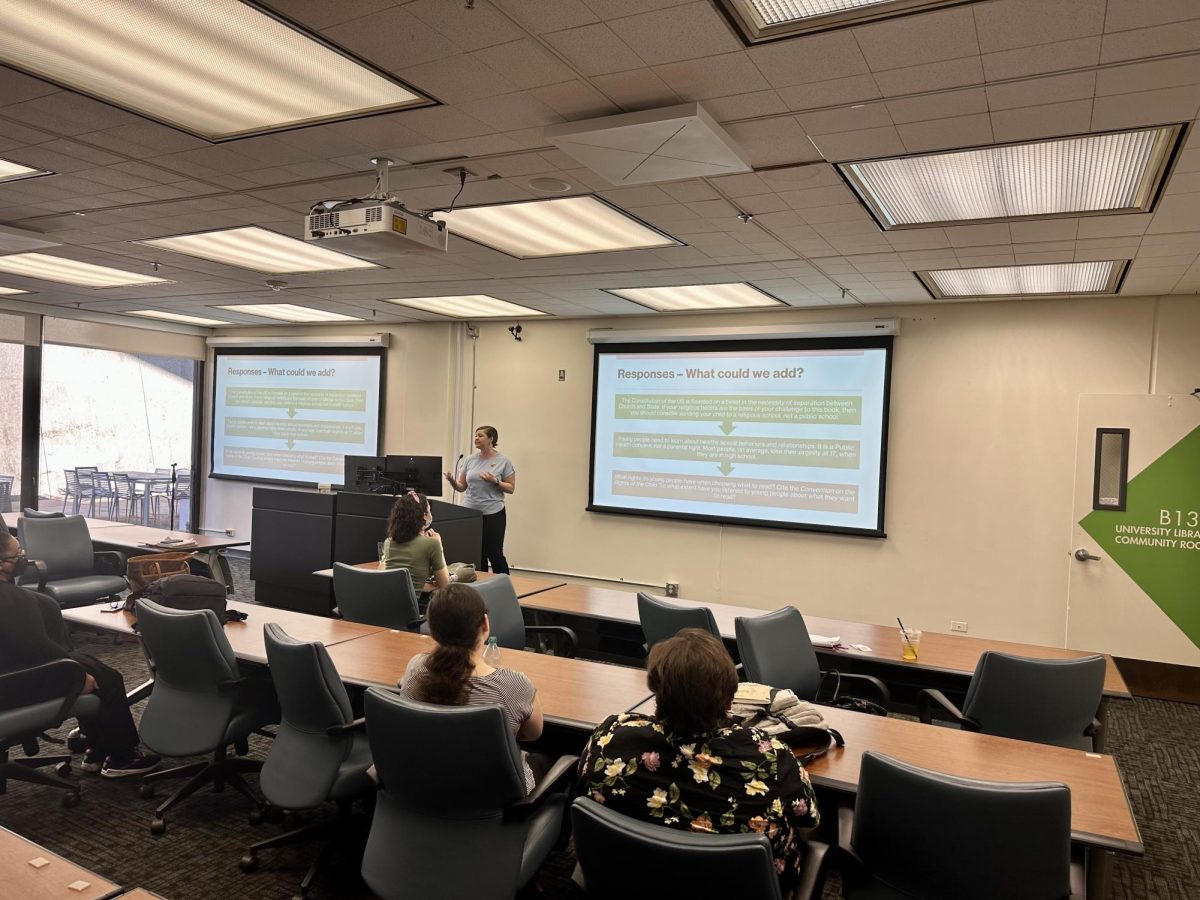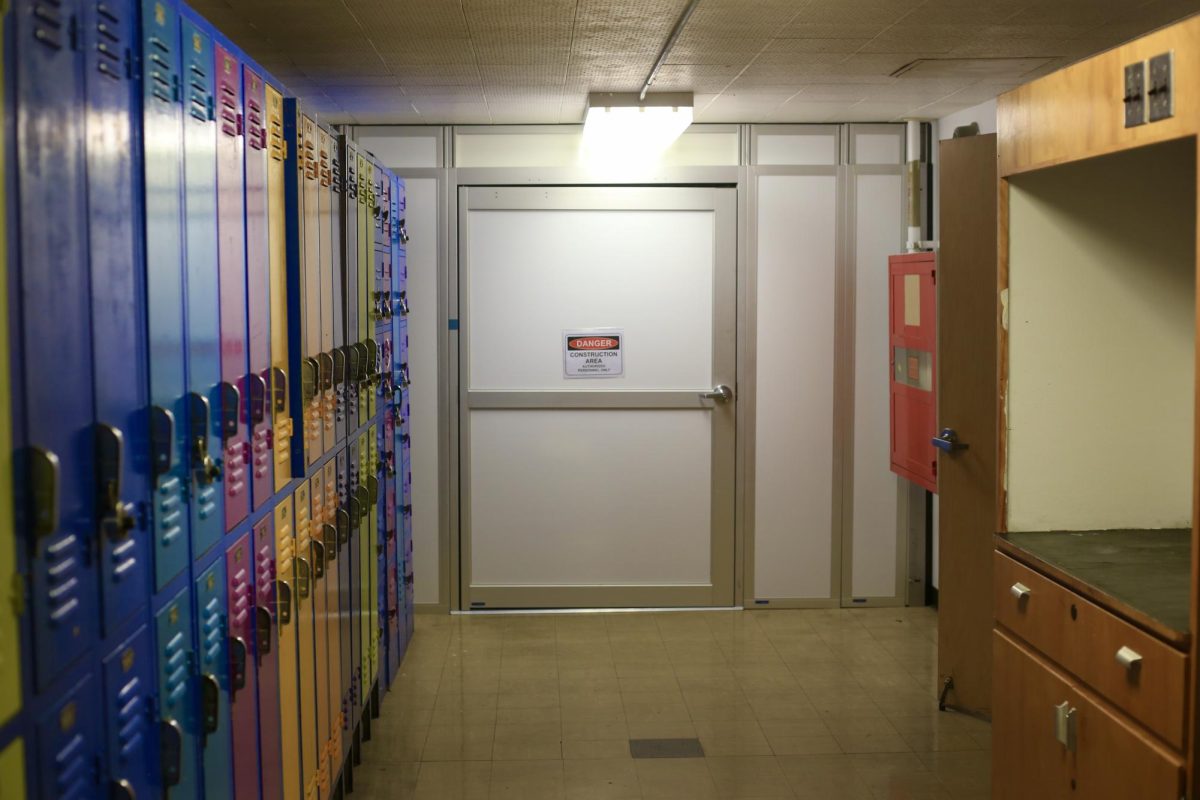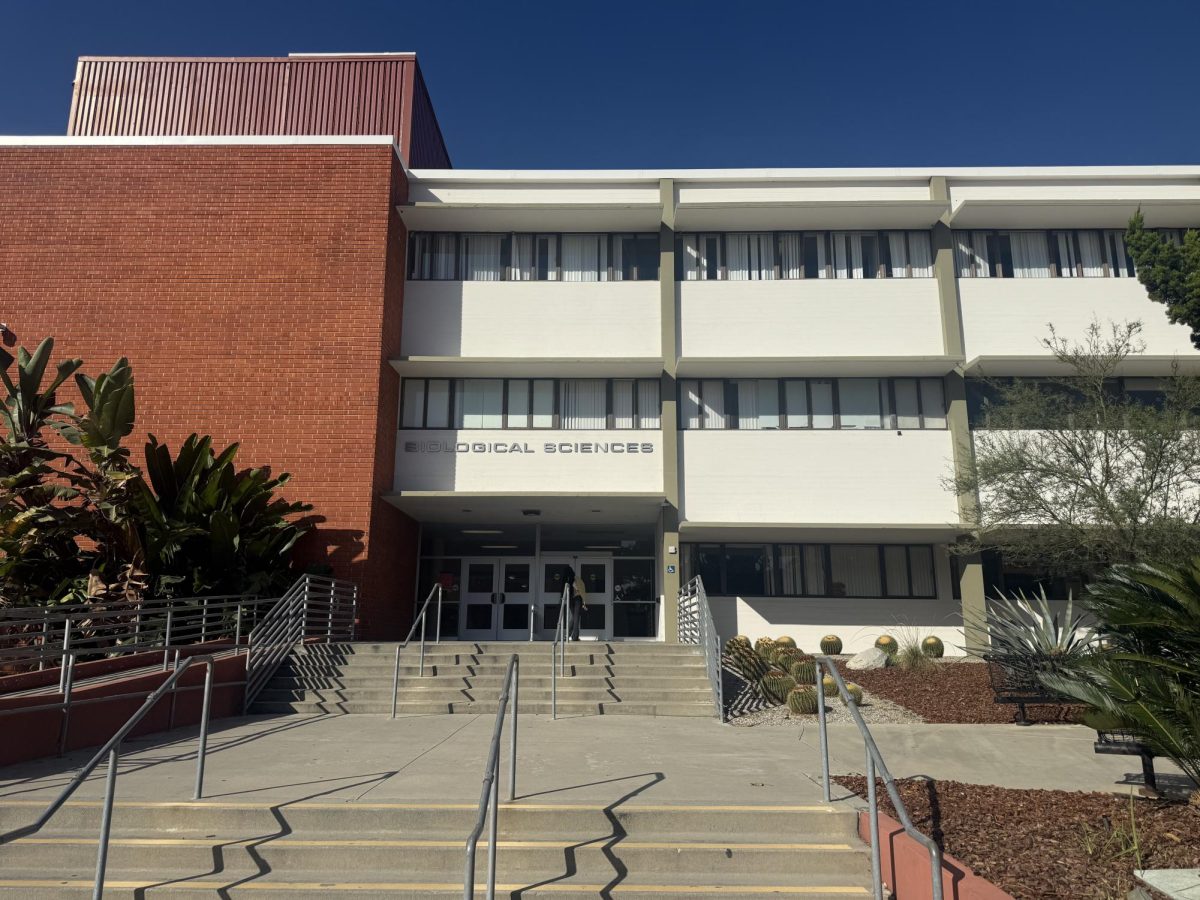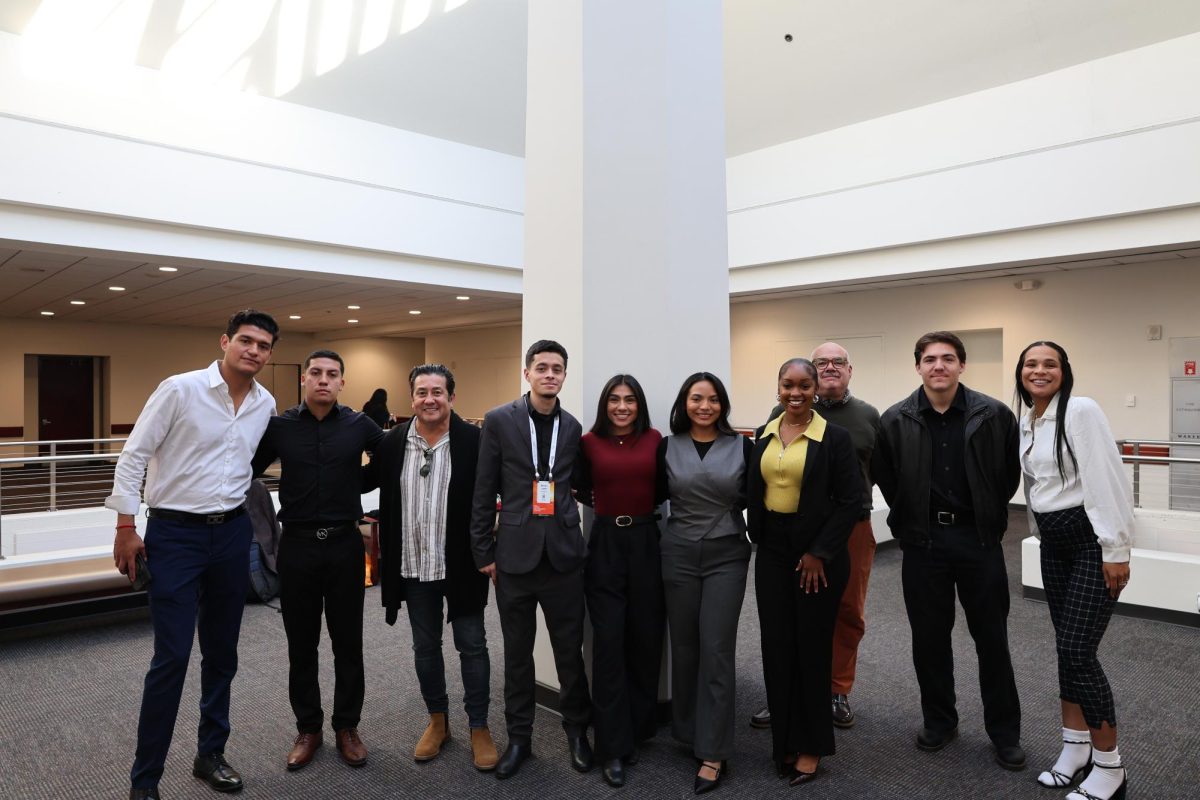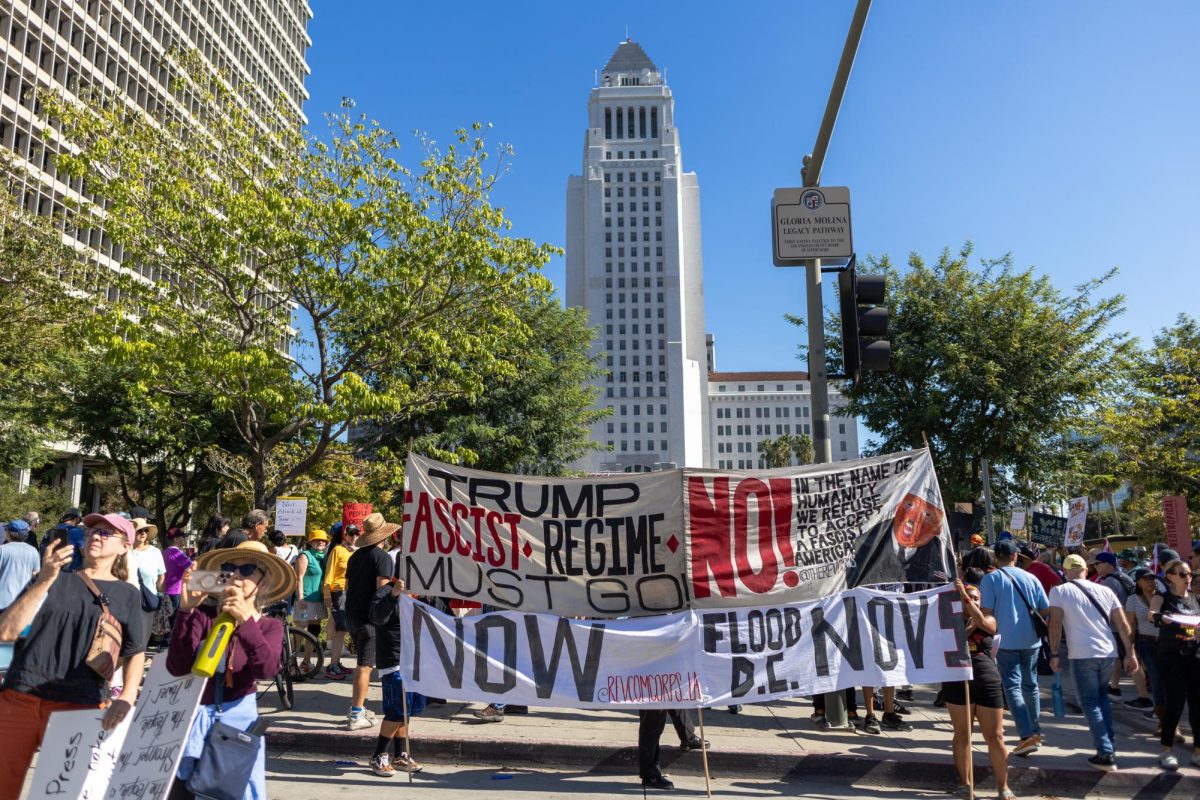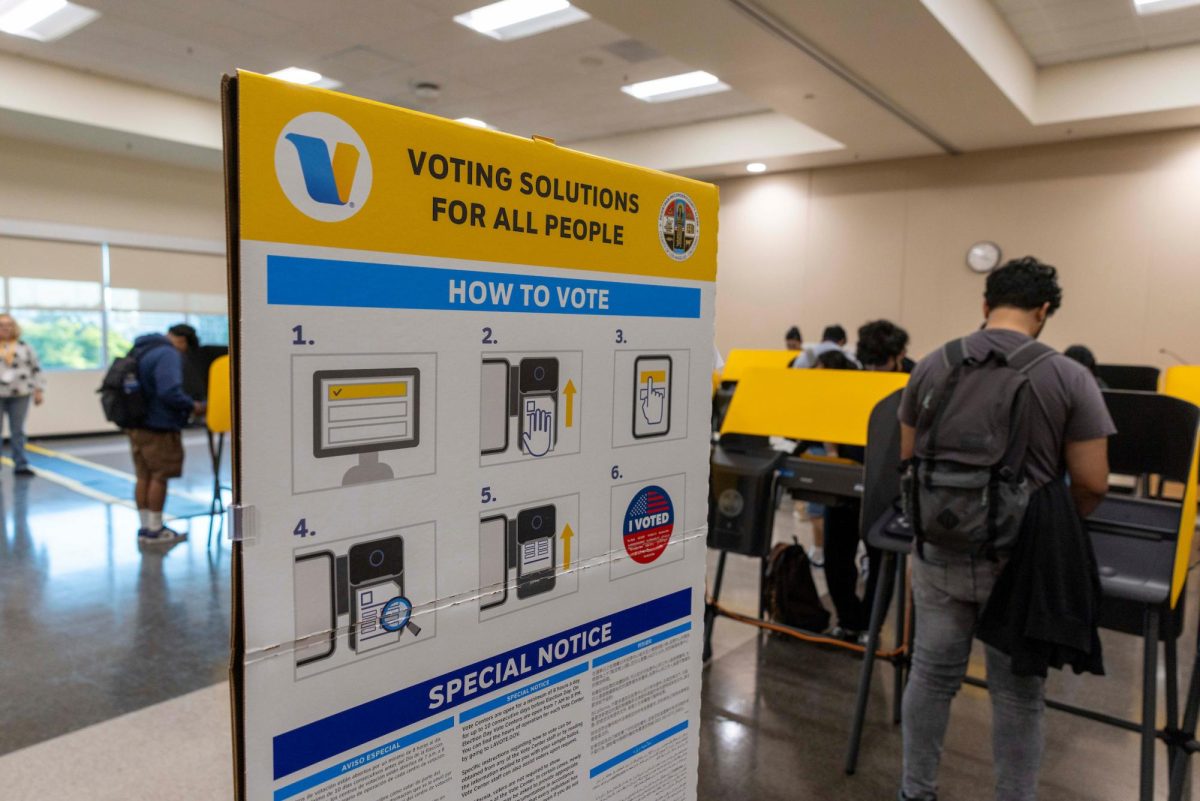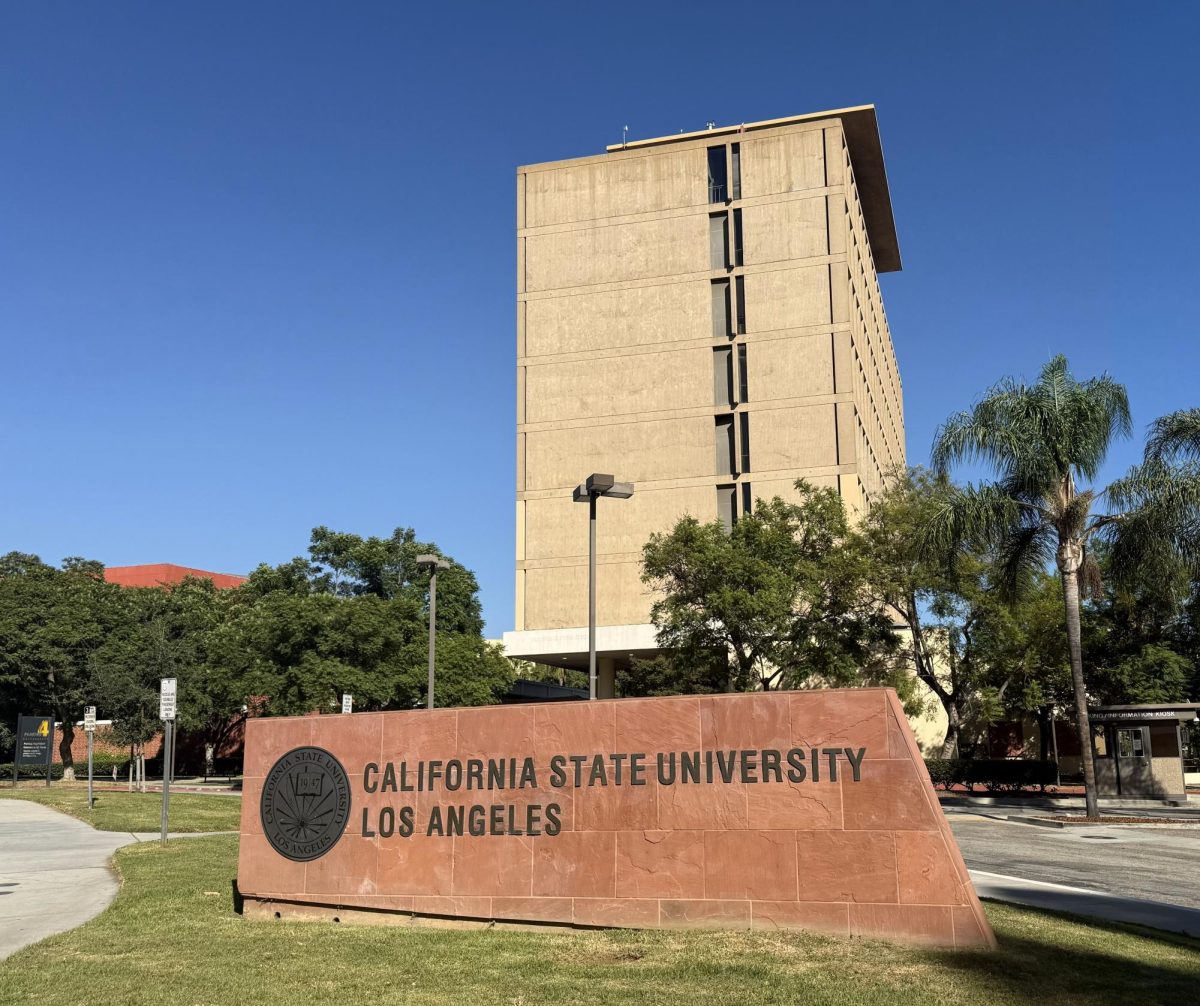The Cal State LA library and English department hosted a series of events celebrating Banned Books week.
The campus library stocks a collection of banned and challenged books including a selection of books by Toni Morrison, “Hop on Pop” by Dr. Suess, “Nickel and Dimed” by Barbara Ehrenreich, “Bless me, Ultima” by Rudolfo Anaya, “Their Eyes Were Watching God” by Zora Neale Hurston and “Gender Queer” by Maia Kobabe, according to Cal State LA humanities librarian Jennifer Masunaga.
The departments began the series with a panel on censorship in books for children and young adults, with speakers like award-winning author and illustrator Joe Cepeda and author of “Intellectual Freedom for Teens”, Kelly Tyler.
To kick off the week, an essay contest was held where students were asked to submit a 500-word response to the question, “What are the consequences of banning books?”
In the corridor outside of the library, a microphone and speakers were set up for a read-aloud, which gave students a three-minute time slot to read an excerpt from their favorite banned or “challenged” book.
At the “Pushing Back Against Book Censorship–Advocacy Workshop,” professor of children’s and young adult literature, Sarah Winslow, discussed how to prevent and resist the banning of books from libraries and schools.
She gave a presentation, highlighting the attempts to “restrict access” to books throughout the United States. During the workshop, Winslow said books are typically challenged for offensive language, violence or sexual content, but as of 2020, banning books has taken a “political turn.”
“We’ve seen these coalitions form around conservative values and ideologies, and they’re aiming to promote their worldviews and to restrict other worldviews from being expressed,” she said.
She said these groups or coalitions challenge books about LGBTQ individuals and also target books about the African American experience and history.
There were only five people in attendance at the workshop, not including the two hosts Masunaga and Winslow.
Masunaga handed out stickers that said, “I read banned books,” bookmarks that said “let freedom read” from the American Library Association (ALA), and pens from the campus library.
“I do feel like we got caught off guard the last couple of years,” Masunaga said. “I think we got complacent. We should have seen this coming based on the political climate, but there just had been so many years where there were just not as many challenges. And now we have [states that] are pulling out of the American Library Association because of the policies we have about banned books.”
Masunaga mentioned that the executive director, Tracie D. Hall, of the ALA, had announced her resignation earlier on Oct. 5., the day of the workshop. She said Hall is a wonderful person, but not prepared for the political climate.
“We’re librarians, not politicians,” she added.
Winslow said some ways to resist attempts to ban books is by responding to common criticisms with logic and creating a grassroots taskforce.
“You’re not alone in this fight. And even if your administrator doesn’t have your back, there is a group of concerned citizens, educators, parents, librarians who are going to have your back, but that needs to be in place,” Winslow said. “Right now, I don’t think it is. I think it’s more reactive…when this happens, then we organize.”
She said the issue is an ongoing conversation: “It’s a fight for our nation and our identity as a nation at this point.”

